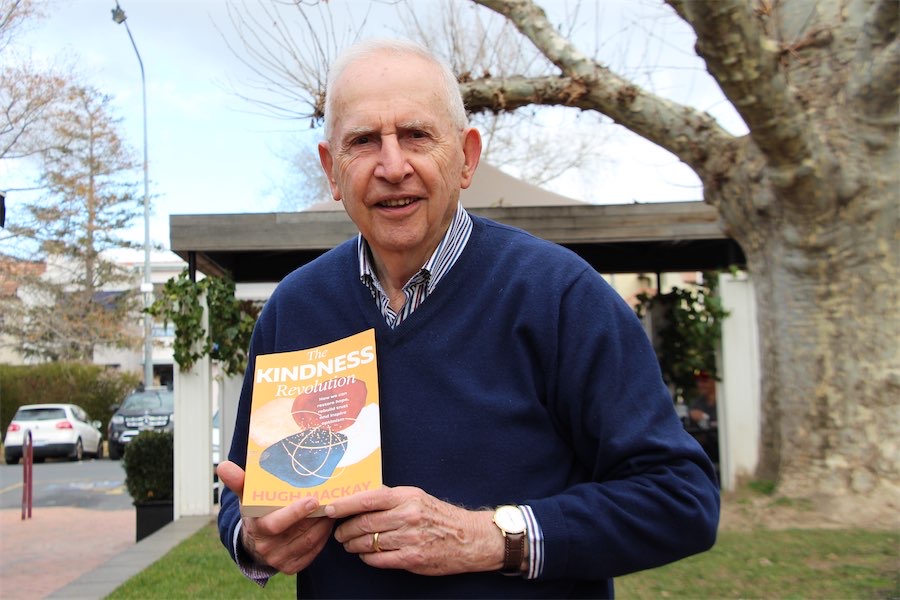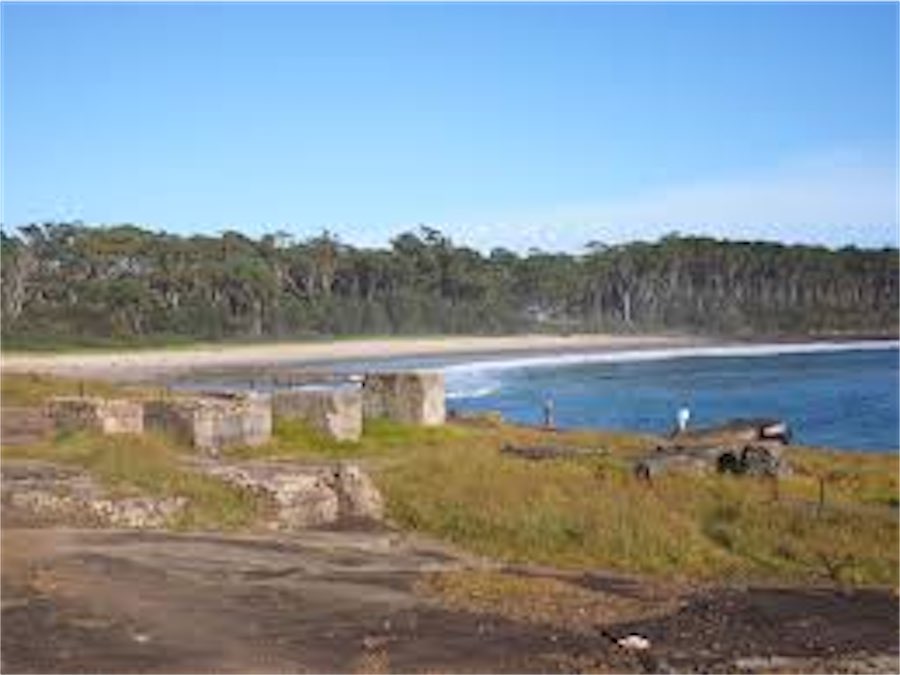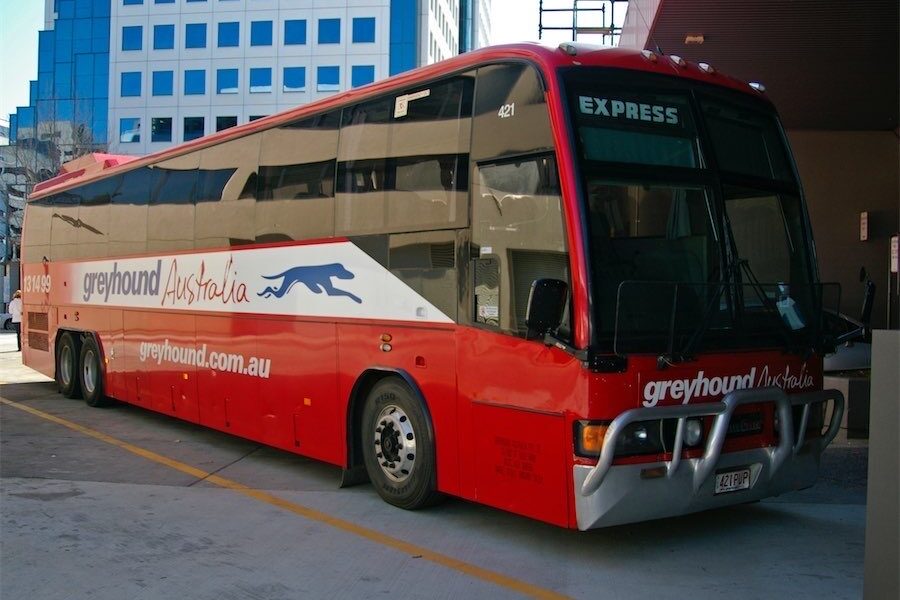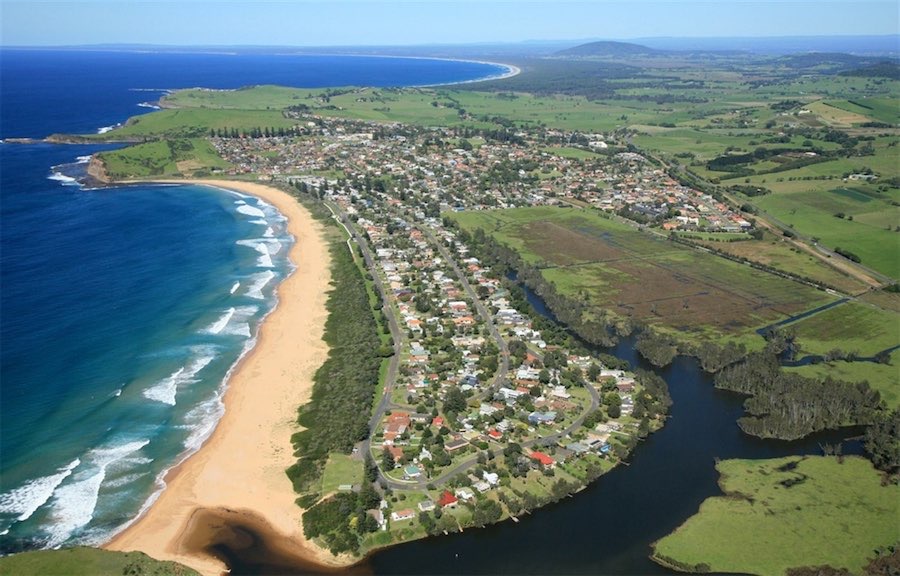
Author Hugh Mackay… “Kindness is the pathway to a fulfilling life for humans so it’s not surprising that when there is a crisis, that’s what comes to the fore.” Photo: Danielle Nohra.
BEST-selling author Hugh Mackay is using his final book about social analysis to call for a revolution of kindness.
He says “The Kindness Revolution” wraps up a more than 50-year career as a social researcher and social psychologist, and while he’ll continue to write fiction, the inner-south resident believes he’s said all he can in the realm of social analysis.
The idea behind “The Kindness Revolution” came from what he witnessed in people after the bushfires and now, during the pandemic.
“I used the pandemic as the jumping-off point for the book and a reference point because it’s such a major dysfunction to our lives,” says Hugh, 83.
“The pandemic is terrible for people who have been infected by the virus and terrible for people whose livelihood has been affected, but a brilliant example of how well humans respond when there’s a catastrophe to deal with.
“Our capacity for kindness, compassion, reaching out, making sacrifices for the common good, all that stuff becomes second nature to us, because it is in our nature.
“Kindness is the pathway to a fulfilling life for humans so it’s not surprising that when there is a crisis, that’s what comes to the fore.”
Hugh says the stories of people doing kind acts during the pandemic are not extraordinary and believes that people can be kind to others they don’t like and kind to people they don’t agree with.
“We can terminate a relationship kindly, you can discipline a child kindly, you can have a robust argument kindly,” he says.
“When people see an old person struggling to cross the road, they help them, they don’t qualify them.
“They don’t say: ‘How did you vote in the last election, are you my sort of person?’
“They just see someone in need and help them.”
Through “The Kindness Revolution”, Hugh is urging people to look at the lessons learned following the bushfires and during the pandemic and not let them go.
However, Hugh admits that people can forget these lessons when life returns to normal and he says there’s two reasons why they do.
The first, he says, is because the ego gets in the way.
“We all experience the struggle between our sense of ourselves as independent, unique, individuals,” he says.
“We are independent individuals, but we are also utterly interdependent, and when there’s a crisis we’re reminded of that.
“Our individual identity doesn’t matter in a crisis, we’re just all in this together. We have to co-operate, we have to help each other out, no questions asked. We don’t hesitate. That’s our true nature.”
The second reason is that Australia, like other western societies, has been through a period of about 30 or 40 years of social change, he says.
This change, according to Hugh, has pushed the idea of individualism and fragmentation, which has resulted in changes such as shrinking households, a high rate of relationship breakdowns and incredible busyness.
“We’re [also] moving house on average once every six years, and our embracing of information technology has connected us, but has made it easier than ever to stay apart.
“All of those changes together in society have pushed us in the direction of being more socially fragmented, less cohesive, more people experiencing social isolation, which explains the triple epidemics that we’ve been suffering from – anxiety, depression and loneliness.”
So the big question of 2021 Hugh asks is, has the pandemic been enough of a disruption to encourage people to resist the effects of all those social changes?
“The pandemic has reminded us that we need each other, that we are members of a social species, we have to look out for each other, we have to make sacrifices for the common good,” he says.
“Let’s not forget that because if we do forget it we slip back into how we were.”
To help implement the kindness revolution, Hugh has created a four-point plan to “CARE”, which urges people to:
- Connect with each other by acknowledging people, smiling at them and saying “hello”;
- Accepting people the way they are – “We don’t have to like them in order to be kind to them!”;
- Respect that everyone’s human. Hugh says everyone deserves kindness because they are members of the same species, not because they share the same opinions;
- Engage with the local community and become better listeners, especially when people are feeling undervalued or isolated.
“It’s very appropriate to dream of a better world and then to acknowledge that the only way to make the world a better place is person-by-person, relationship-by-relationship, workplace-by-workplace, street-by-street,” he says. “Kindness multiplies.”
“The Kindness Revolution” ($32.99) at all book shops and online.
Who can be trusted?
In a world of spin and confusion, there’s never been a more important time to support independent journalism in Canberra.
If you trust our work online and want to enforce the power of independent voices, I invite you to make a small contribution.
Every dollar of support is invested back into our journalism to help keep citynews.com.au strong and free.
Thank you,
Ian Meikle, editor





Leave a Reply